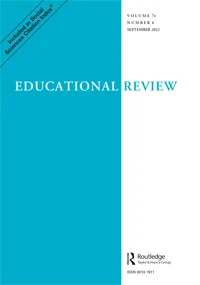Haley, A., Kassaye, S., Zerihun, Z., & Uusimäki, L (2022)
ABSTRACT.
Universities engage in international collaboration for a number of reasons. In the global North, which is characterized by wealth and power, universities increasingly use international collaboration for competitiveness and marketization. In contrast, the global South engages in collaboration to strengthen research and build knowledge capacity. Prior studies argue that trust, mutual benefits, and achieving shared understandings and ways of working are important for sustainable collaboration. However, the studies generally examine what makes a “good” collaboration well after collaboration has been initiated. The contribution of this study is therefore to exemplify the relationship-building process between academics from an Ethiopian and Swedish university. The study is based on “cooperative inquiry” and uses data collected in April 2019 from questions composed by each set of academics, which were deliberated during their initial meeting. Their experiences of enablement and constraint in research collaboration and their motivations for pursuing a new collaboration are in focus
